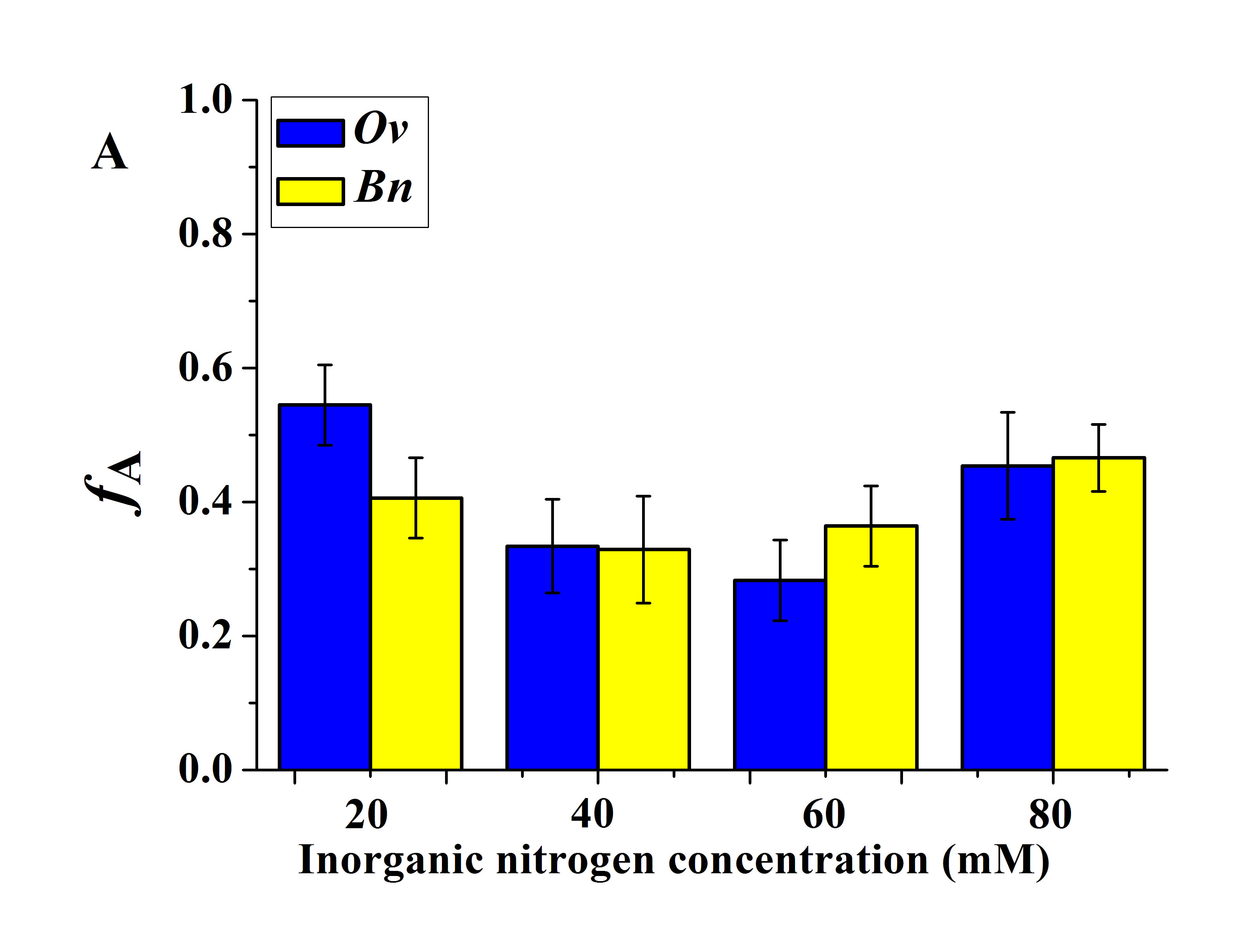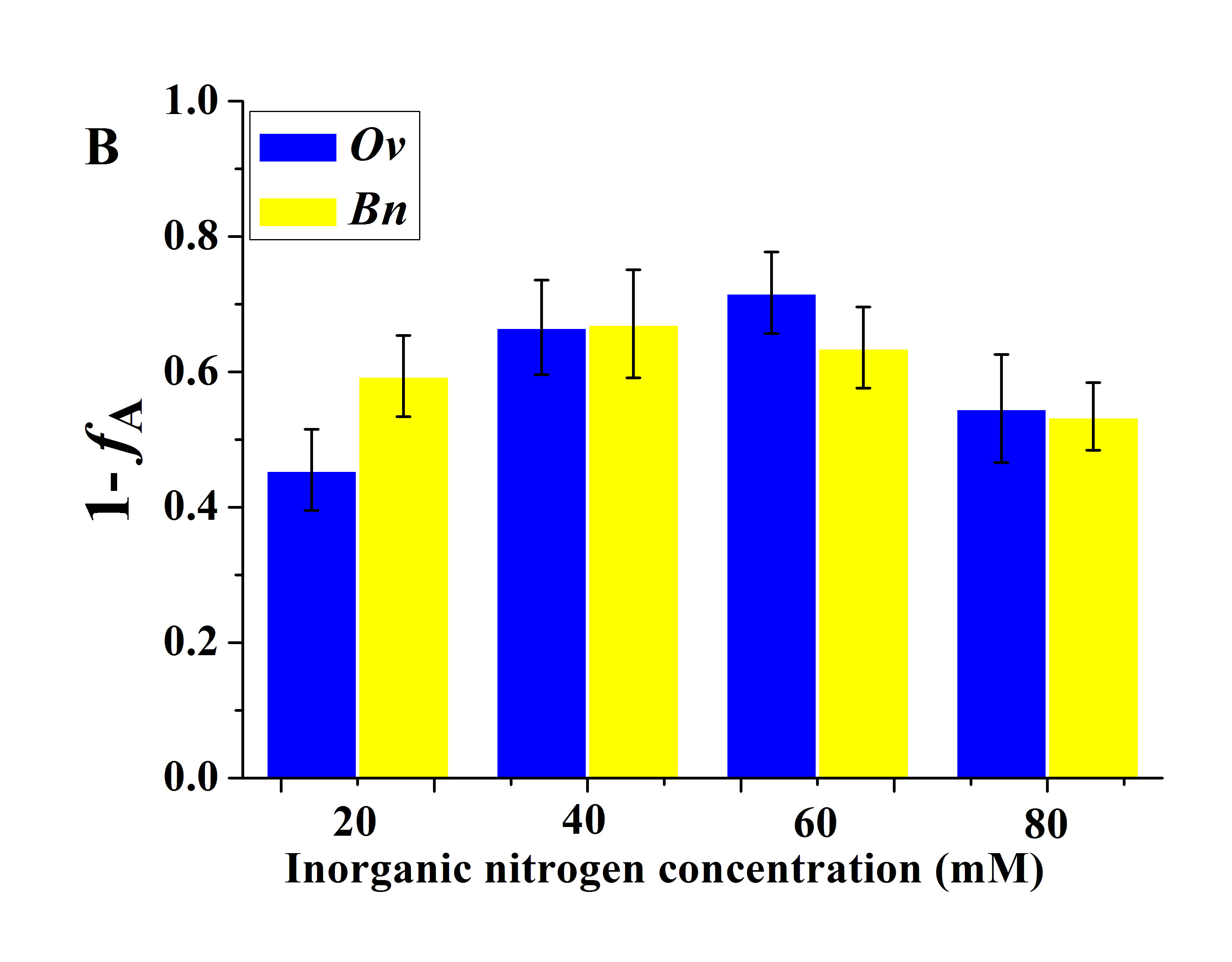Nitrate (NO3-) and ammonium (NH4+) are two major forms of nitrogen uptake for plants. When both nitrate and ammonium are simultaneously available to plants, the proportion of assimilated nitrate and ammonium depends on the plant species, growth and development stage, and growing environment.
Quantifying the differential contributions of NO3-/NH4+ to nitrogen use can help improve the nitrogen-based fertilizer use efficiency of plants and reduce environmental pollution, and provide a useful method to study the environment adaptability and inorganic nitrogen utilization mechanism of plants. However, it is very difficult to quantify the differential contributions of NO3-/NH4+ to nitrogen use for plants in the co-existence of nitrate and ammonium.
Based on their successful experience on quantifying the proportion of inorganic carbon utilization for both plants and microalgal, Professor WU Yanyou’s research team from the State Key Laboratory of Environmental Geochemistry, Institute of Geochemistry, Chinese Academy of Sciences, effectively quantified the differential contributions of NO3-/NH4+ to nitrogen use for plants by the bidirectional stable nitrogen isotope tracer technique.Their findings were published in Plant Methods.
The researchers selected the Orychophragmus violaceus (Ov) and Brassica napus (Bn) plantlets for the experiment. Ov is adapted to grow in the karst regions, where the soil nutrient is poor and nitrate is dominant relative to ammonium, and Bn was used as a control. Two labeled stable nitrogen isotope treatments (L- and H-labeled nitrate) were carried out to study the contributions of NO3-/NH4+ to nitrogen use for plants.
The results showed that the Ov plantlets assimilated more nitrate than the Bn plantlets at the lowest inorganic nitrogen concentration. In both Ov and Bn, the proportion of NO3-/NH4+ utilization did not show a linear relationship with inorganic nitrogen supply. The difference of assimilating nitrate and ammonium between Ov and Bn revealed the difference of Ov and Bn in adapting karst soil where nitrate is more abundant than ammonium.
Quantifying the utilization of nitrate and ammonium revealed the differences in nitrate and ammonium assimilation among plants at different inorganic nitrogen supply levels, and offered an alternate way to conveniently optimize the supply of inorganic nitrogen in culture media.
Meanwhile, the group developed the methods of determining the nitrogen isotope fractionation of nitrate or/and ammonium during plant’s nitrogen assimilation under the mixed nitrogen sources. Recently, the related invention patents got approved by the National Intellectual Property Administration. These methods will not only make it more convenient and faster to study the differential contributions between nitrate and ammonium in plants, but also provide technical support for the nitrogen precision management in crop production.
The above work was supported by the National Key Research and Development Program of China, the National Natural Science Foundation of China, and the project of high-level innovative talents of Guizhou Province.
|

|
|

|
|
Fig. The contribution of the nitrate (A) and ammonium utilization (B) to total inorganic nitrogen assimilation for theOvandBnplantlets cultured under different inorganic nitrogen concentrations. The ratio of nitrate to ammonium within each inorganic nitrogen concentration was 2:1. The error bars was the result which was calculated by the error propagation formula (Image by IGCAS) |
Contact: WU Yanyou
Institute of Geochemistry, Chinese Academy of Sciences
E-mail: wuyanyou@mail.gyig.ac.cn
(By Prof. WU Yanyou’s group)